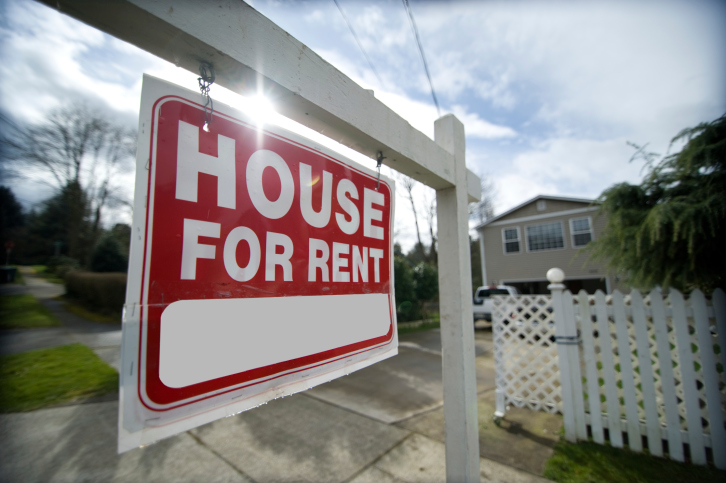 Buying a house can be expensive, and it can take a long time to save up money for a down payment; however, it might be time for you to stop renting and buy your own place. What are some of the top reasons why it might be time to put down some roots?
Buying a house can be expensive, and it can take a long time to save up money for a down payment; however, it might be time for you to stop renting and buy your own place. What are some of the top reasons why it might be time to put down some roots?
Your Rent Is Going Up
The reality is that your rent will go up with time. Every time you renew your lease, it can be frustrating to see that rent check continue to increase. If you are tired of your rent going up, get a mortgage. You could lock in the same payment for 30 years.
You Are Going To Stay Put For A While
Are you planning on staying put for a while? If so, you don’t have to worry about buying a selling a house too quickly. Go ahead and purchase a house! You are going to be here for a while anyway, so you might as well get a stable mortgage.
You Don’t Want To Pay Someone Else’s Mortgage
Did you know that you might be paying someone else’s mortgage with your rent check? Why not use that money to pay off your own mortgage? After all, there’s no reason why you should feel obligated to use your money to pay down someone else’s home loan.
You Want To Build Wealth
If you want to build wealth for yourself and your family, one of the best ways to do so is to own property. Your property should go up in value over time, and 100 percent of the capital appreciation is yours because the value of your loan will remain the same, regardless of the capital appreciation of your house. If you want to build wealth, owning property is one of the best ways to do so.
Stop Renting And Buy Today
Clearly, there are plenty of reasons why you might want to stop renting and consider buying a house. You need to work with an expert who can help you find the right loan option to meet your needs. There are attractive opportunities out there, so if you are ready to build financial wealth, consider buying a house today.
 The whole idea of investing is to use a portion of your money now to get more down the road. It is important for everyone to diversify their investments, and you might be thinking about buying a second house to do so. Investing in real estate is a goal that a lot of people have, but how can you get started? It was challenging enough to buy your first house, so how can you afford a second one?
The whole idea of investing is to use a portion of your money now to get more down the road. It is important for everyone to diversify their investments, and you might be thinking about buying a second house to do so. Investing in real estate is a goal that a lot of people have, but how can you get started? It was challenging enough to buy your first house, so how can you afford a second one?  If you are applying for a home loan of any kind, there is a high likelihood that your lender will require a home appraisal. An appraisal is done to figure out how much your home is actually worth because the lender does not want to lend you more money than you could theoretically sell the home for in the future. There are some situations where the lender might be fine with a drive/by appraisal. What does this mean?
If you are applying for a home loan of any kind, there is a high likelihood that your lender will require a home appraisal. An appraisal is done to figure out how much your home is actually worth because the lender does not want to lend you more money than you could theoretically sell the home for in the future. There are some situations where the lender might be fine with a drive/by appraisal. What does this mean? Even though many people are focused on some of the most common mistakes that first-time home buyers make, there are also a lot of mistakes that first-time sellers make. Your house is an investment, and the time to capitalize on that investment is when you sell your house. What are some of the mistakes you need to avoid if you want to find the best deal possible?
Even though many people are focused on some of the most common mistakes that first-time home buyers make, there are also a lot of mistakes that first-time sellers make. Your house is an investment, and the time to capitalize on that investment is when you sell your house. What are some of the mistakes you need to avoid if you want to find the best deal possible? As interest rates fluctuate, you might think about refinancing your mortgage. This is the cost of taking out a new home loan to replace the one you currently have. If you get a significantly lower interest rate, you could save tens of thousands of dollars over the life of the mortgage. On the other hand, you need to think about potential expenses you might incur during the refinancing process. Because you are taking out another home loan, you may need to pay closing costs a second time. What are some of the most common expenses you might have to pay?
As interest rates fluctuate, you might think about refinancing your mortgage. This is the cost of taking out a new home loan to replace the one you currently have. If you get a significantly lower interest rate, you could save tens of thousands of dollars over the life of the mortgage. On the other hand, you need to think about potential expenses you might incur during the refinancing process. Because you are taking out another home loan, you may need to pay closing costs a second time. What are some of the most common expenses you might have to pay? Owning rental properties is a great way to diversify investments. Similar to the stock market, homes come in many shapes and forms. Some people are looking for short-term rental properties while other people are looking for long-term rental properties. What are the differences between them, and why might one person choose to own one of these properties over the other?
Owning rental properties is a great way to diversify investments. Similar to the stock market, homes come in many shapes and forms. Some people are looking for short-term rental properties while other people are looking for long-term rental properties. What are the differences between them, and why might one person choose to own one of these properties over the other?